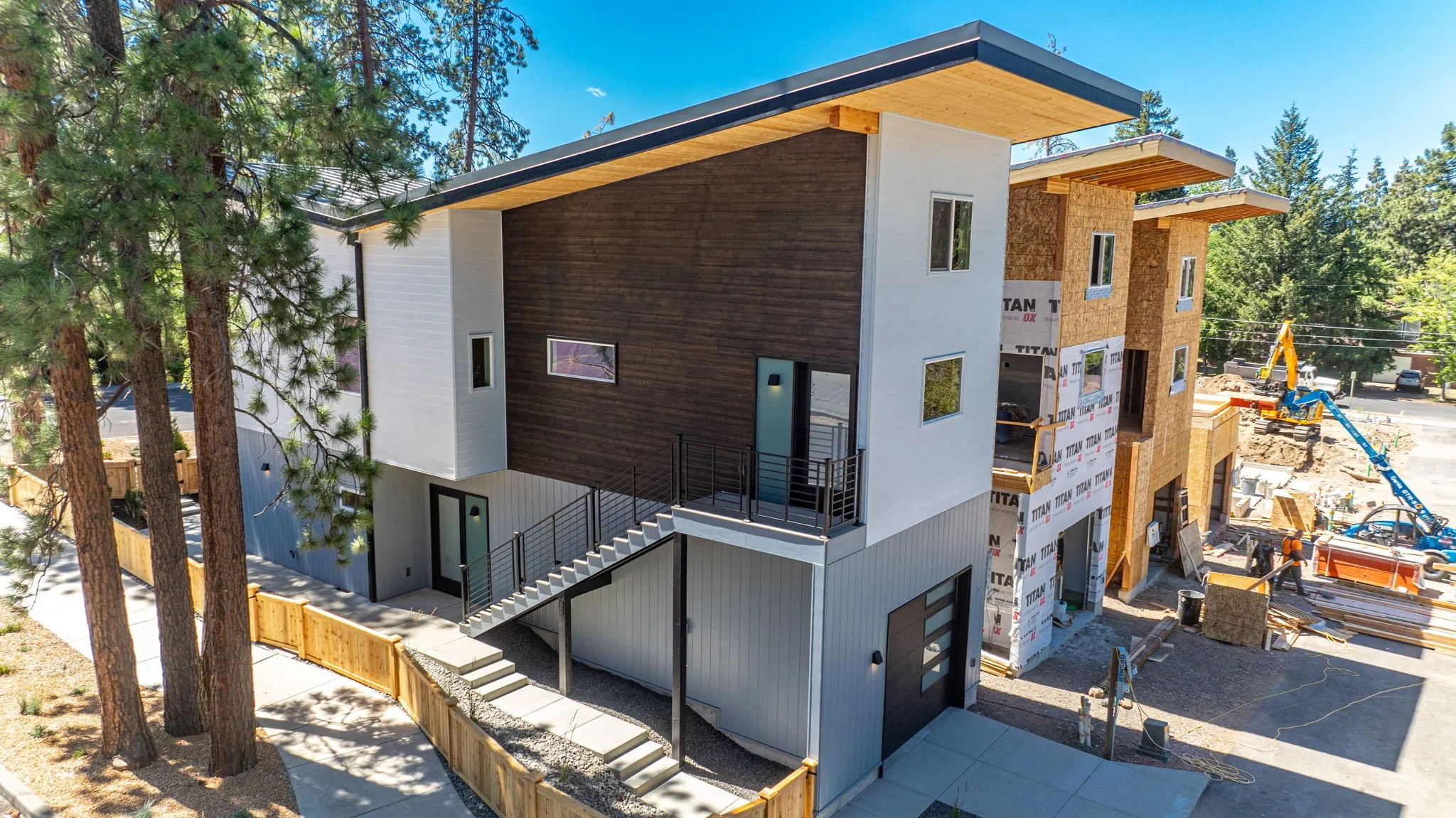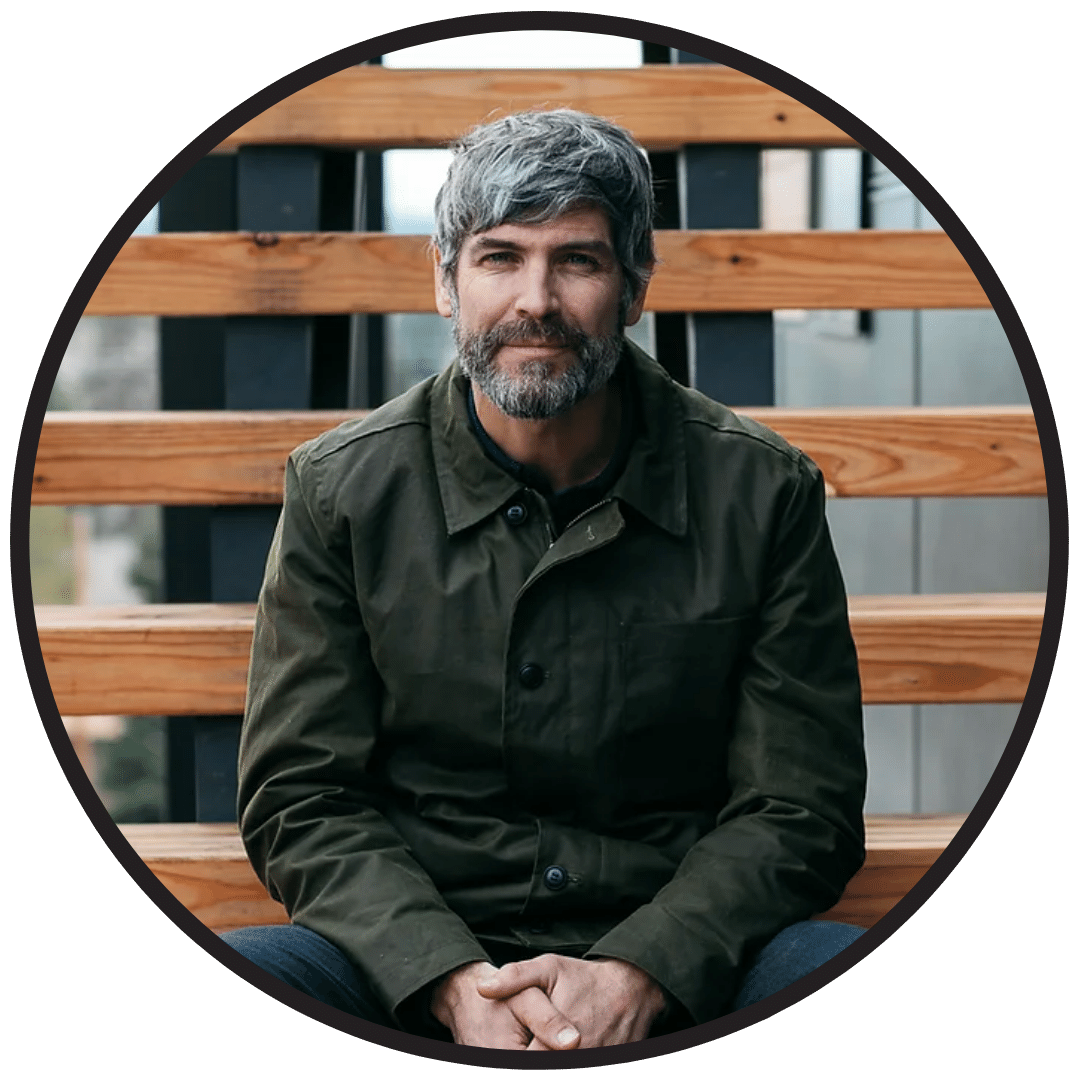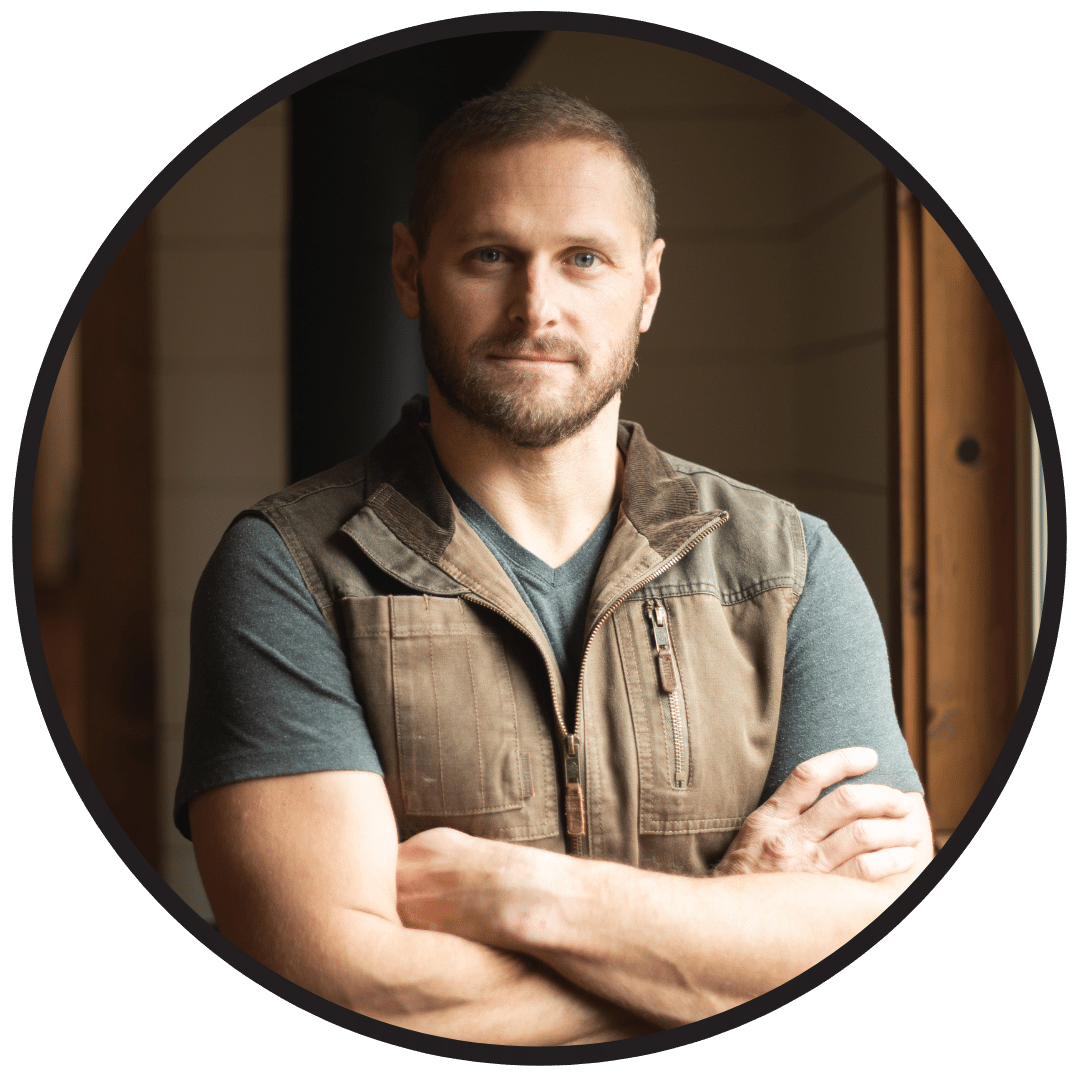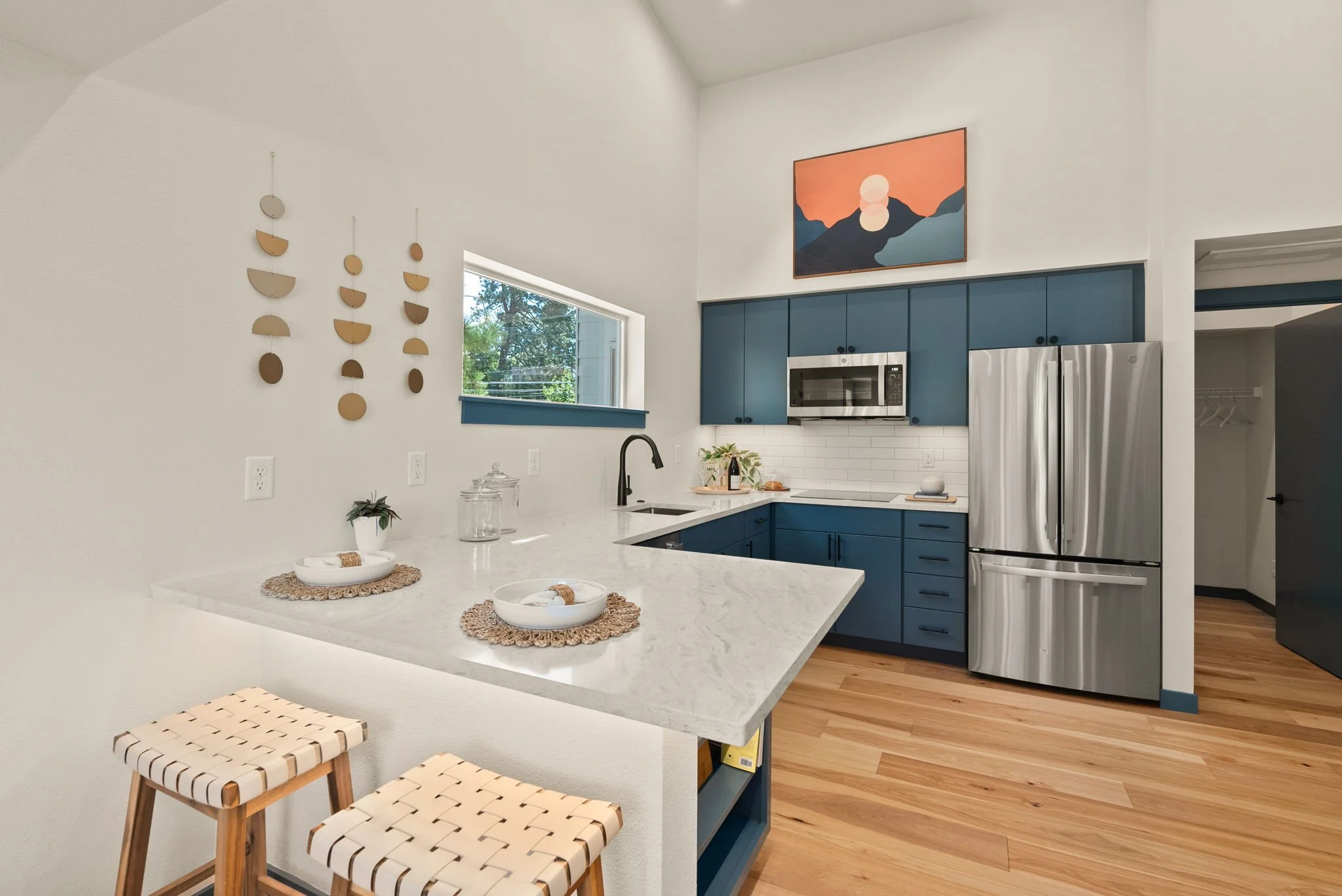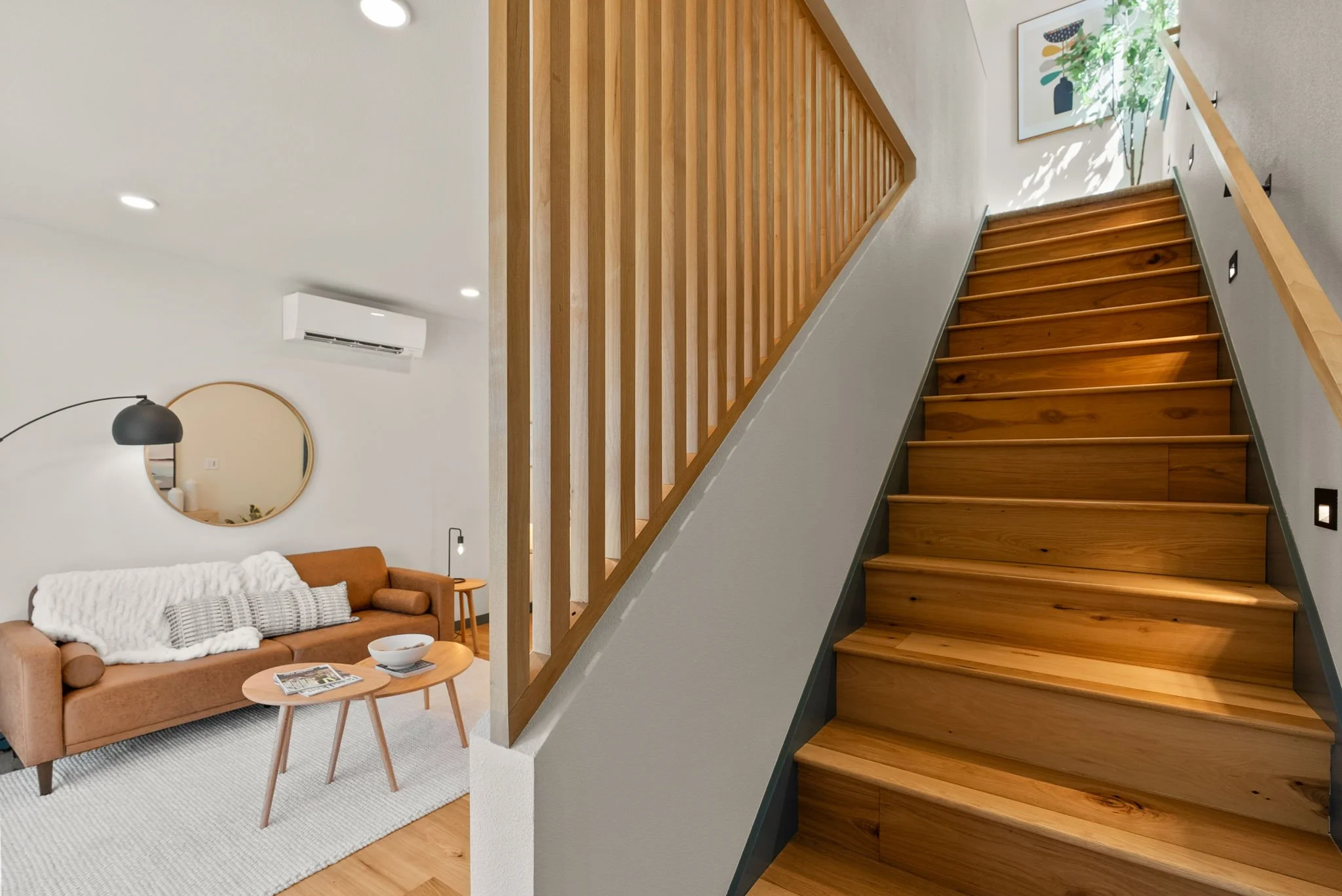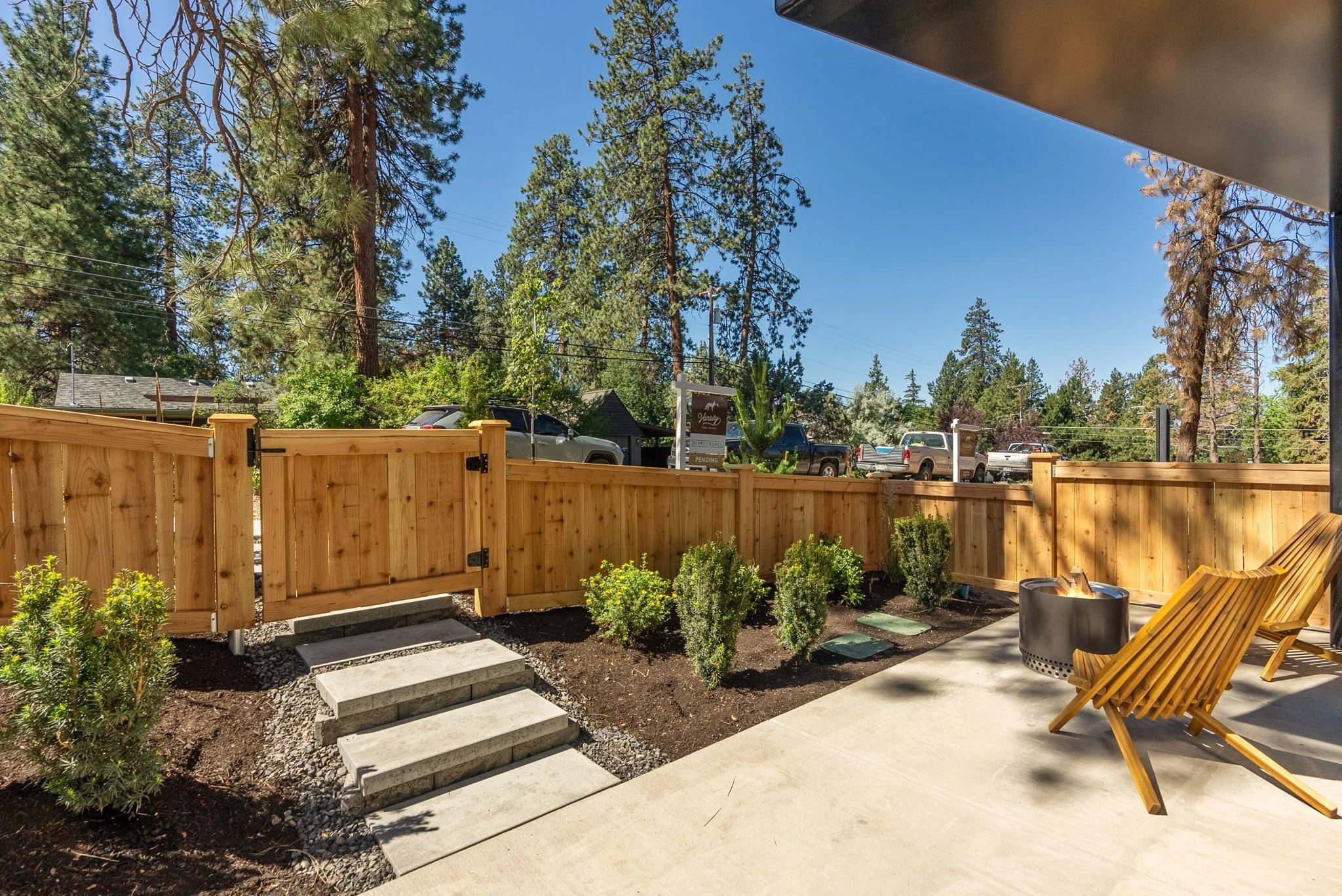How Small-Scale Homes and Cottage Communities Address Middle-Income Housing Needs | Jesse Russell and Ryan Andrews of Hiatus Homes
Courtesy of Hiatus Homes
A Small, But Mighty Housing Solution
Most developers assume the housing crisis is about supply. Jesse Russell and Ryan Andrews of Hiatus Homes see it differently: it's about designing for households that most developers overlook. One to two-person households represent the largest and fastest-growing demographic in America, yet they're the least served by new construction. Based in Bend, Oregon, Hiatus Homes builds homes ranging from 500 to 1,200 square feet specifically for this market. Since 2020, they've raised $8 million from 60 local investors.
Their Hiatus Ninth project demonstrates how small-scale infill development works in practice. On a half-acre lot that once held a single home, they subdivided the property into nine lots and built "twinhomes"—a main unit with an attached ADU that functions as both a primary residence and rental property. This approach allows middle-income buyers (80-120% AMI) to afford homeownership while generating rental income, using financing structures that treat the combined units as a primary residence rather than an investment property.
This conversation also explores the policy changes enabling this housing type, the three-stage capitalization strategy they use, the construction process with guaranteed-price builders, and the barriers still preventing small-scale development from scaling nationally. Jesse and Ryan offer practical advice for developers navigating zoning codes, engaging local government, and creating housing that serves workforce needs while remaining financially viable.
Listen on Spotify | Listen on Apple Podcasts | Watch on YouTube
“Good real estate projects, especially small scale real estate projects, should be funded by the community.”
Courtesy of Hiatus Homes
About Jesse Russell
Jesse is the founder of Hiatus Homes—a Bend, Oregon-based company known for high-quality, ecologically sound, and intelligently designed home construction. The small footprint of these homes help create urban density and provide more housing inventory during a time of national housing shortages. He is considered a thought leader in the design and development of small spaces and communities, and is an advocate for people living in smaller, more efficient, net-zero homes.
Jesse grew up in Bend, Oregon, and, after a stint traveling around the world and working in New York and Los Angeles as a television producer, returned to his hometown in 2015 and started building his first tiny house in a friend’s backyard. That early prototype debuted at the Bend Design Conference the same year, garnering media attention and lines around the block for a tour. Jesse went on to experiment with designs for various small structures, including a tiny tavern on wheels, two mini-pubs for 10 Barrel Brewing Co, and a food truck at Brasada Ranch. He has been devoted to the small-home movement ever since.
In 2019, Hiatus Homes pioneered the first community of small-scale homes in the city, called Hiatus Benham. It was inspired by Washington architect Ross Chapin’s concept of “pocket neighborhoods” and Bend’s need for efficient, sustainable, high-quality housing. The development required years of close work with the city in order to permit this new style of housing. “Building that first development was the most challenging thing I’d ever done, but all the support I felt from city staff, investors, and homeowners has made it the best life experience I’ve ever had,” recalls Jesse.
Now, Jesse brings more than 20 years of experience in executive-level leadership, project management, construction, and land development as CEO of Hiatus Homes and managing partner of the Hiatus Capital Fund. Every Hiatus development is guided by the same principles embodied by Jesse’s first house build: employing smart design, using high-quality materials, reducing utility consumption, and with an eye toward creating community.
About Ryan Andrews
Courtesy of Hiatus Homes
Ryan is the chief financial officer of Hiatus Homes and the Hiatus Capital Fund. Ryan has managed 20+ investment funds and syndications across real estate debt, equity, and venture capital, specializing in capitalizing construction and development projects. In concert with Hiatus Homes’ goal of providing housing to a new type of buyer, Ryan aimed to provide local investors with access and opportunities to invest in development projects in their own community. He structured the Hiatus Capital Fund to be owned and funded primarily by local investors who live in Bend, Oregon. When a project is financially successful, the profits flow back to the people who have invested into the local community instead of out-of-the area professional investors.
Ryan grew up in Orange County, California, and attended the business school at Cal Poly San Luis Obispo, where he earned a bachelor’s in finance concentrating in sustainable real estate development. Ryan worked in Pacific Investment Management Company’s (PIMCO) institutional investment division and later became an early employee at CrowdStreet, a fintech startup that pioneered online real estate syndications.
In 2014, Ryan became a principal and head of capital markets at Trueline Capital, a boutique construction debt fund focused on financing infill residential projects. He was involved in capitalizing over 100 development projects. In 2018, Ryan launched the Recession Resistant Fund, where he invested in over 50 mobile home parks, apartment buildings, and self-storage facilities across 13 states.
Between 2019 and 2022, Ryan was the portfolio manager for the Phoenix Real Estate Debt Fund, a subsidiary of Tel Aviv-based Phoenix Insurance. The portfolio specialized in holding syndicated multifamily construction debt. Ryan oversaw the growth and investment of the fund as it grew from $13 million to over $500 million in assets in three years. In 2024, Ryan joined Mt. Bachelor Community, Inc. as CFO, MBCI is a community funded organization created to acquire Mt. Bachelor Ski Area and hold it with local, community ownership. Ryan is a member of the Bend Economic Advisory Board, a subcommittee of the Bend City Council.
Ryan and Jesse partnered in 2020 to create the Hiatus Capital Fund. The Fund includes over 60 investors, nearly all have ties or live locally in Bend, Oregon. Hiatus demonstrated the success of grass roots investor fundraising by raising $8 million to capitalize the 4 development projects in the Fund.
Courtesy of Hiatus Homes
Courtesy of Hiatus Homes
Episode Timestamps
(03:59) Capital raising through the JOBS Act and community-based investors
(08:52) Defining small-scale development and the housing types that qualify
(13:49) Hiatus Ninth project overview: subdividing one lot into nine twin homes
(21:06) Design and construction process with guaranteed-price builders
(23:44) Pricing strategy and the importance of getting buyers into the physical space
(27:50) Three-stage financing structures and end-user mortgages
(33:23) How Freddie Mac allows rental income to offset mortgage qualification
(39:47) Inventory challenges and building permit slowdowns
(43:29) Barriers to scaling small-scale developments
(53:50) How developers can engage local government and advocate for zoning reform
Courtesy of Hiatus Homes
About your host:
Atif Qadir is a licensed architect and entrepreneur, interested in solving big problems through innovation and technology. He has founded two proptech companies and a real estate development firm, building products ranging from software to workforce housing.
His work has been covered by Technology Review, The Real Deal, Commercial Observer, and Propmodo. He’s also a frequent speaker on the future of buildings and cities on popular industry podcasts and at conferences, including this past year at the Commercial Observer National DEI Conference, Yale AREA Conference, Columbia Real Estate Symposium, Open Data Week NYC and Austin Design Week.
About Michael Graves
The world-famous design firm Michael Graves is also a founding sponsor of American Building. Its namesake, the iconoclastic designer Michael Graves, FAIA was a fierce advocate for people-centric design. His work defines a generation of American architecture and includes the Portland Building, the Humana Building and the Denver Public Library. The 1st season of American Building was filmed live at The Warehouse, his historic home in Princeton, New Jersey:
Rate, Review, & Subscribe on Apple Podcasts
Did you love this episode? Let us know by rating and review our show on Apple Podcasts. It’s easy - simply click this link, click on Listen on Apple Podcasts, scroll to the bottom of the page, and select “Write a Review”. Let us know what you liked best about the episode, and what others can expect when they listen to our show.
While you’re at it, consider subscribing to American Building. When you subscribe, you can guarantee you never miss a conversation with one our renowned designers, architects, and developers. Subscribe now!
